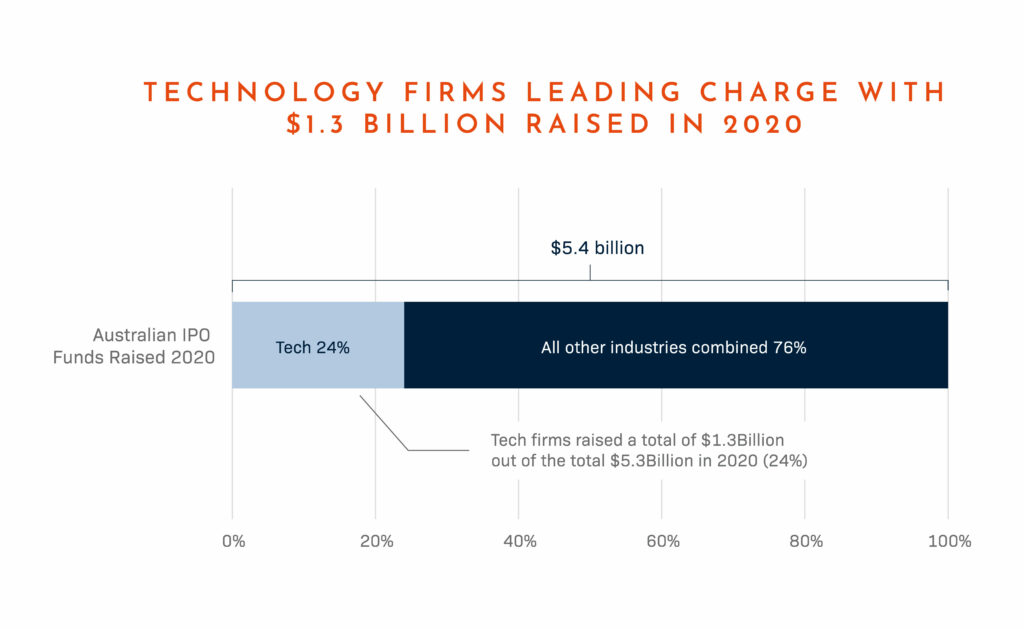Australia: navigating post-IPO escrow for key employees
These are exciting times for investors in Australian Initial Public Offerings (IPO) – especially key employees who hold Founder Shares. These employees often look to sell these shares as soon as the post-IPO escrow period ends. However, there is an alternative that enables them to raise funds while retaining exposure to their vested shares
– says Mitchell Hopwood at EquitiesFirst.
The last 12 months have been very difficult for humanity, but great for markets. After collapsing in the first quarter of 2020, global stocks have come roaring back faster and further than almost anyone expected. In April this year, the Dow Jones Industrial average crossed the 34,000 point mark for the first time.1 Here in Australia, the ASX200 breached 7,000 points for the first time since the pandemic began, coming within range of its all-time high.2
This extraordinary recovery in equities has been fuelled by unprecedented fiscal stimulus and monetary easing intended to cushion the impact of the worst economic crisis since the Second World War. In recent months, demand for stocks has been supercharged by growing optimism that the rollout of vaccines heralds a gradual return to pre-pandemic life around the world.
Bumper Crop of IPOs
Not surprisingly, companies have been rushing to list in such buoyant markets, with analysts expecting another bumper year for Australia IPOs in 2021. It is also no surprise, given the shifts the pandemic has caused to how we work and live, that technology firms have been leading the charge. According to Bloomberg, they accounted for A$1.3 billion of the total A$5.4 billion raised through floats last year, achieving the sector’s biggest share of IPO volumes in at least 10 years.3
There were 66 IPOs in Australia’s 2020 vintage. Investors in these newly-listed companies have generally done well: they were up an average of 42% at the end of the year and markets have continued to rise since then.4 This performance has helped create wealth for employees who received share options ahead of those companies’ IPOs, among other shareholders. For employee shareholders of information technology stocks, the wealth effect has been even more pronounced: shares in this sector have returned more than 86% in the last 12 months.5

Employee Lock-Up
But these key investors – often senior management of the firm – are also typically subject to a “lock-up” provision that requires them to place their shares in an escrow account after the IPO.
For companies qualifying for an IPO through the ‘asset test’ – which requires them to have A$4 million of net tangible assets or a market capitalisation of A$15 million as well as A$1.5 million of working capital – the ASX will usually oblige certain shareholders to place their shares in escrow for a period of 12 to 24 months, depending on the type of shareholder and other circumstances.6
The provision applies to shareholders like seed investors, promoters and major shareholders, related parties like directors and professionals or consultants who have been paid for their services in shares. It aims to prevent these early investors from selling – and potentially causing volatility – before the market has had time to properly value the company through trading.7
Pre-IPO employee investors are often counting down the months, weeks and days until they are allowed to sell stock.
For many of these early investors, though, the escrow period is a frustrating but necessary delay between wealth being created for them through the IPO and them having access to that wealth. Pre-IPO employee investors are often counting down the months, weeks and days until they are allowed to sell stock.
That does not mean they lack confidence in their company: usually it just means they have immediate opportunities, expenses or other capital needs. They may also need to fund a tax payment: the Australian Taxation Office treats employee stock options as income once they vest, which makes them subject to a tax rate of as much as 45%.

Options for Equities Post Escrow
Investors in this situation sometimes assume that they have no alternative to selling their shares in order to meet their capital needs. Yet the private credit market does offer an attractive alternative: equity financing.
Through a non-recourse loan with EquitiesFirst, a shareholder can pledge a portion of their holding as collateral for their borrowing. The same number of shares will be returned to the borrower when the loan is repaid. During the life of the transaction, the original shareholder retains exposure to the performance of the shares and the right to receive dividend payments.
By accessing this alternative source of liquidity, a pre-IPO investor can retain their full shareholding when escrow ends, enjoy all the upside of owning the stock and make the investments, purchases or payments they had in mind.
免責聲明
過去的業績表現並不保證未來的回報,個人回報將不受保證或擔保。
本文件只供合資格的投資者、資深投資者、專業投資者或其他合資格的投資者使用(或如法律要求或其他要求),不適用並不得用於未符合相關要求之人士。本文件的內容只供參考用途,僅屬通用性內容,並無針對任何具體目標或財務需要。本文件表達的意見及立場乃由第三方提供,未必反映 EquitiesFirst 的意見及立場。EquitiesFirst 並無進行獨立檢查或驗證所述之內容,概不就其準確性或完整性作出聲明。本文件的意見及資訊如有更改,恕不另行通知。內容並不構成出售(或要約購買招攬)任何證券、投資或任何金融產品(「要約」)。任何該等要約只可透過有關銷售文件或其他文件列出的實質條款及細則。本文任何內容均不構成 First Holdings, LLC 或其子公司(統稱為「EquitiesFirst」)對任何投資產品購買或銷售的建議、招攬、邀請、誘導、促銷或要約,亦不得以任何方式被解釋為投資、法律或稅務建議,或作為 EquitiesFirst 的建議、參考或背書。在就金融產品作出投資決定之前,閣下應該先尋求獨立的財務建議。
本文包含 EquitiesFirst 在美國和其他國家/地區的知識產權,包括但不限於其各自的標誌以及其他已註冊和未註冊商標及服務標記。EquitiesFirst 保留本文所包含知識產權的一切權利。收件人不得將本文件的全部或部分內容發放、刊登、複製或以其他方式提供給任何其他人,尤其不得發放給任何可能導致違反任何法律或監管要求的國家/地區的人。
EquitiesFirst 對本文件不作任何陳述或保證,並明確否認依法享有任何默示保證。閣下承認在任何情況下,EquitiesFirst 對任何直接、間接、特別、由此導致、附帶性或懲罰性的損害概不負責,包括但不限於任何虧損利潤或損失的機會,即使 EquitiesFirst 已被告知該等損害可能性。
EquitiesFirst 提出以下可能適用於所述司法管轄區的進一步聲明:
澳洲: Equities First Holdings (Australia) Pty Ltd (ACN: 142 644 399) 持有澳洲金融服務牌照 (AFSL 編號: 387079)。版權所有。
本文件所含資訊只供澳洲境內人士,以及 2001 年《公司法》第 761G 條所定義的批發客戶使用。向不屬此類人士發佈資訊可能會受到法律所約束,而擁有資訊的人士應尋求建議並遵守任何此類限制。
本文件所含資料只作訊息用途,並不構成購買或銷售金融產品之要約、招攬或建議。
本文件所含資訊屬於一般性質,並非個人金融產品建議。本文件所含的任何建議均屬一般建議,制定時並無考慮到閣下的目標、財務狀況或需要。在就任何資訊採取行動之前,閣下應該根據自己的目標、財務狀況和需要,仔細考慮所提供資訊的適當性及相關財務產品之性質。在就金融產品作出投資決策之前,您應尋求獨立的財務建議,並仔細閱讀相關的披露聲明或其他要約文件。
香港: Equities First Holdings Hong Kong Limited 根據《放債人條例》獲授牌照(放債人牌照號碼:1681/2023),並且根據證券及期貨條例(「SFO」)(CE No. BFJ407)可進行證券交易業務(持有第一類牌照)。本文件未經香港證監會審核。文件並不構成要約銷售證券或招攬購買由 Equities First Holdings Hong Kong Limited 管理或提供的任何產品的意圖,並只供受證券及期貨條例(SFO)規限下,符合專業投資者資格的人士使用。本文件不得發放予個別人士或機構作可能非法或違規的要約或邀請用途。
韓國: 上述內容只供在進行證券融資交易方面具有足夠知識和經驗的資深投資者、專業投資者或其他合資格的投資者使用。不適用並不得用於未符合相關要求之人士。
英國: Equities First (London) Limited 獲英國金融行為監管局 (「FCA」) 授權及監管。在英國,本文件僅供《2000 年金融服務與市場法》(金融推廣) 2005 年(「FPO」)法令第 IV 章第 19(5) 條(專業投資從業員)及第 49(2) 條(高淨值公司、非法團協會等)所述類別之人士使用,以及與本文相關的任何投資活動僅提供給該類人士使用,並且僅與該類人士有關。對於在投資相關事宜上沒有專業經驗,或《FPO》第 49 條不適用的人士,不得依賴本文件。本文件僅為符合金融工具市場指令中具有專業投資者資格的人士而制定,並只適合該等人士使用。
